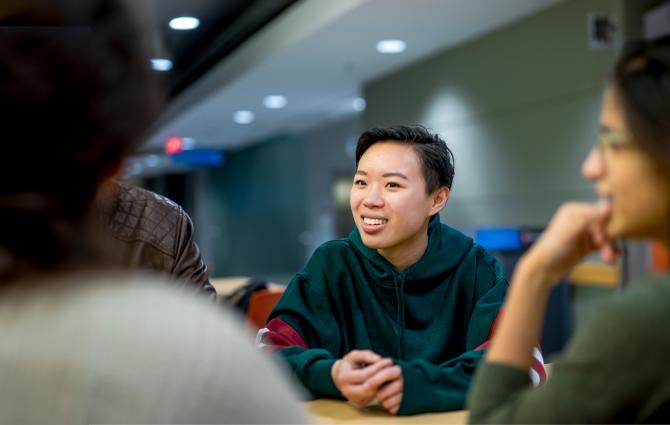Despite being one of Canada’s wealthiest provinces, BC’s poverty rate is one of the highest in Canada and it’s disproportionately high for marginalized groups – including students.
Yet our province is the only one in Canada without an actionable plan to reduce poverty – until now. BC is asking for input from the public on how the government can begin shaping their poverty reduction plan.
Last week, I joined a student consultation hosted by the Centre for Community Engaged Learning, in partnership with the AMS, and facilitated by groups like BC Poverty Reduction Coalition, the BC Federation of Students, Raise the Rates, and Check Your Head who provided more context on BC’s policies surrounding poverty alleviation.
This consultation is intended to help shape BC’s poverty reduction plan and give students a voice at the table. A group of UBC graduate students will be compiling all the feedback from the consultation into a report that will be submitted to the government – so that conversation can be turned into action.
Why student voices matter
Living within a university bubble can feel disconnecting sometimes, but it’s important to realize that we belong to a larger community and that we have the agency to do better.
Historically, students have made big differences in shaping the province that we live in today...just think about how the Great Trek created our campus, or how UBC students are striving to make a better BC for everyone.
Your voice can have an impact on the issues that directly affect you – and the steps we can take toward a poverty-free BC are simpler than you think.
The consultation
Whether it’s the struggle of finding a job, the high rental rates, or tuition fees and student loans, we all know it can be difficult to live in an increasingly expensive Vancouver, especially for a student. I was surprised that it took this consultation for me to realize how normalized the broke and struggling student experience has become – but it shouldn’t be a standard.
Some concerns that were brought up surrounded precarious employment, housing, postsecondary access, and newcomers. More specifically:
-
how the current provincial minimum wage is $11.35, which puts full-time workers under the poverty rate of $20,000 a year,
-
the lack of social or affordable student housing in Vancouver,
-
tuition rates and the low threshold of eligibility for student loans,
-
systemic barriers for newcomers like applying for grants or welfare and unregulated international student tuition.
What can be done
But it isn’t all doom and gloom. I was inspired by not only the breadth but the strength of student voices that stirred the discussion. By the end of another round of discussions, the walls were lined with sheets of poster paper covered in Sharpie-scrawled suggestions like more non-market housing solutions, restructuring government funding allocation, more needs-based education grants, removing the arbitrary and structural barriers to welfare, and reinforcing rental regulation laws.
But these policy recommendations are more than just hopeful ideals, they can become a reality. The poverty reduction plan in Newfoundland and Labrador helped bring down the poverty rate from 17% to as low as 6%. Ontario has given free post-secondary education to over 210,000 students through their Ontario Student Assistance Program – a financial aid program that provides grants and free tuition to low-income families.
I left the room with a greater sense of how much work needed to be done but heartened to see the massive efforts being taken.
Next steps
Now’s the time to get involved. You can help shape BC’s poverty reduction plan by:
-
Submitting your feedback before March 30, or signing up online.
-
Learning more about the issues within your community.
Or get involved in other ways:
-
Get empowered with Check Your Head, a non-profit that encourages youth to use their civic voice and rights – because changing the system requires learning how it works.
-
Get involved with student government or join advocacy groups at UBC like Rents With Rights, an AMS campaign that advocates for tenancy rights for students living on campus.
-
Support Raise the Rates, a coalition of community groups working to end poverty and homelessness, and – you guessed it – to raise the rates for welfare and minimum wage.
There are so many platforms on campus and in your community for you to get involved with issues that matter to you – it’s just a matter of finding where to get started.




